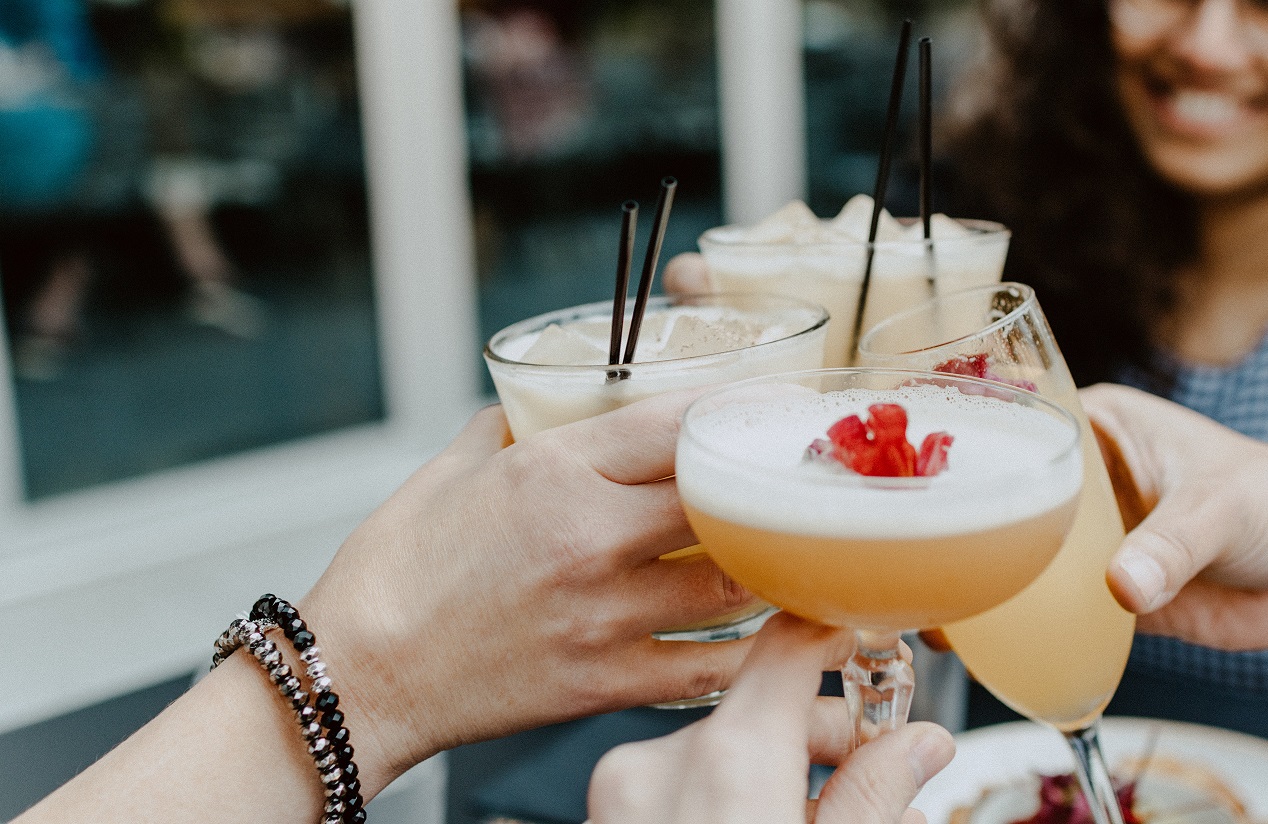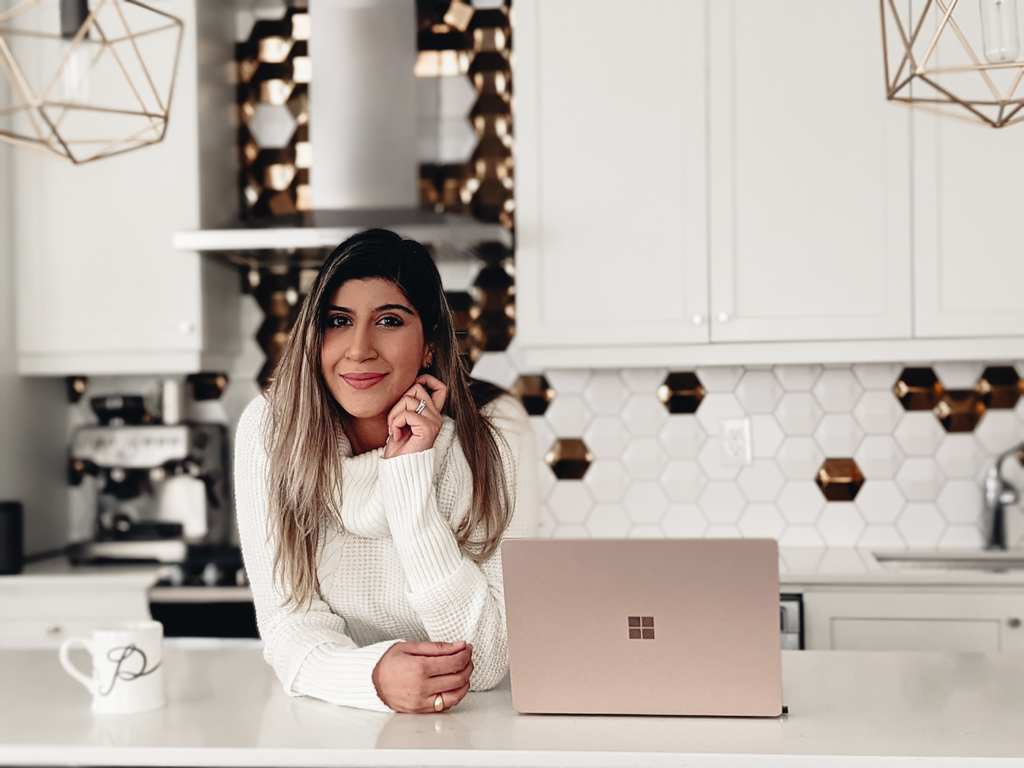It’s a lazy Sunday morning. You wake up, make coffee and get to your morning yoga class, followed by brunch over mimosas with friends. You talk about your lives, dating, shopping, beauty tips. Anything and everything but politics. Who wants to go down that rabbit hole? How you vote is your business and outside of that you’re pretty apolitical. Politics can be dirty. Talking politics is rude (that’s what you’ve been told your entire life) and fraught with conflict. Plus, it’s your choice right? You’re not making political decisions. Or are you?
The era of apolitical social media is over
A recent Buzzfeed article, titled The Era of Influencers Being Apolitical Online Is Over examined the case of blogger Lauryn Evarts Bosstick, who goes by the Skinny Confidential. Following the death of Supreme Court Justice, Ruth Bader Ginsburg, a Facebook page for fans of the blogger was created to discuss the death of a political and cultural icon. Instead, members of the group complained that RBG posts were deleted and the group was shut down. Bosstick claimed in an open letter on Instagram that she wanted to keep her page free of politics and religion to try and keep a “POSITIVE space” for women.
She proceeded to write a blog post explaining that her platform “is not meant for political debate or judgement on morality. This was always meant to be a space for beauty tips, hairstyles, dating advice etc. It was intended to feel like you were at a boozy brunch having mimosas with friends, sharing insights on lighter topics and LOL-ing over jokes.”
Buzzfeed’s article argues that as the U.S approaches the most divided election in history, in a year where millions of people are impacted by policies and the extent of inherent social justice has become apparent, the time for social media influencers to stay apolitical is over. But in a world where every choice we make has a political consequence, is being apolitical a choice or privilege?
Every choice we make is political
We live in a world where even the most mundane choices have political undercurrents – from the clothes we wear, to the vacations we take. In some way, shape, or form our ideology is reflected in these choices and nothing is more political than consumer behavior.
Let’s go back to Sunday morning. The coffee you drink is available to you because of trade agreements and policies. If you’re buying fair trade coffee a lot of politics have happened behind the scenes to make it available and accessible. Brunch over mimosas – that’s political because it’s about economic access. Who gets what in society. Talking about dating? If technology is involved at all, that’s a minefield of politics and exploitation of natural reserves. Beauty tips? The beauty industry sets the standards for beauty and gender norms globally. Shopping? Well few industries have more of an environmental impact than the fashion industry. It emits more carbon than airlines and maritime shipping combined. Global fashion supply chains leave an environmental footprint larger than any other industry except energy and mining, where 85% of textiles end up in landfills every year.
The point is that every dollar we spend, every conversation we have online and offline is political. We cannot escape it; we cannot avoid it and we cannot pretend that our choices exist in a neutral vacuum with no political consequences.
Is being apolitical really a choice or is it privilege?
The concept that everything is political was recently driven home for me. One of my favorite writers, Janne Robinson, posted a picture of herself on her Instagram account, posing with a Hudson’s Bay Company blanket. The blanket is a trademarked iconic symbol of this major Canadian brand. Janne’s post was met with heavy criticism, especially from the Indigenous and Native American communities, to whom those blankets represent genocide and annihilation of their histories, culture and stories. In the 1800s, early Canadian trading posts, traded blankets and fur with Indigenous communities, and it is believed that the blankets contributed to the spread of smallpox, influenza, measles, typhus and other infectious diseases brought by Europeans to the Americas.
As I went down the rabbit hole of research to learn more about this, I realized that this major brand whose business I had been supporting for years, represented something completely different to an entire population of people. The domino effect of how my consumer choices might inadvertently prop up white supremacy, racism and the continued social and economic suppression of Canadian Indigenous and Native communities. This lack of knowledge and understanding is my privilege, and my economic participation is political.
It is easy to not care about what doesn’t affect us. When our situation is in lockstep with the status quo, or if the status quo serves us – why would we speak up against it? The problem is that silence is what has led to a tidal wave of political, economic, social and environmental degradation. Neutrality has contributed to decades of bad policies that have slid under the radar, all culminating in a dormant dragon that has reared its head this year. Being apolitical isn’t really a choice. It is privilege.
When Black Lives Matter protests broke out all over America, racial injustice was no longer (and should never have been in the first place) a Black people problem. It is everyone’s problem. When wearing masks to prevent the spread of Covid-19 becomes an issue of public health and safety, it is everyone’s problem. When forest fires burn down homes and businesses, it is everyone’s problem. And when all of this culminates in the one of the most important elections in the history of the world’s largest cultural, economic and military superpower, it is everyone’s problem.
So, should we engage in political comment wars?
No. Lauryn Evarts Bosstick’s argument for shutting down her Facebook page was that it was resulting in a lot of negativity and women tearing each other down in the comments section. And under no circumstances should that be allowed. As an influencer, it’s responsible to moderate comments and keep dialogue healthy and safe. But to argue that a social media platform is only for positivity and laughing over mimosas with your friends about beauty and fashion trends seems out of touch in the current climate.
Buzzfeed, argued that the era of influencers being silent over social media is over. I would say social media influencers were never apolitical. They just didn’t realize how political they were. Now is a time for everyone to wake up and speak up. We cannot escape the deeply entrenched politics of our lives. But we can speak up for better policies. We can start to move the needle towards changed behavior. We can talk politics.



